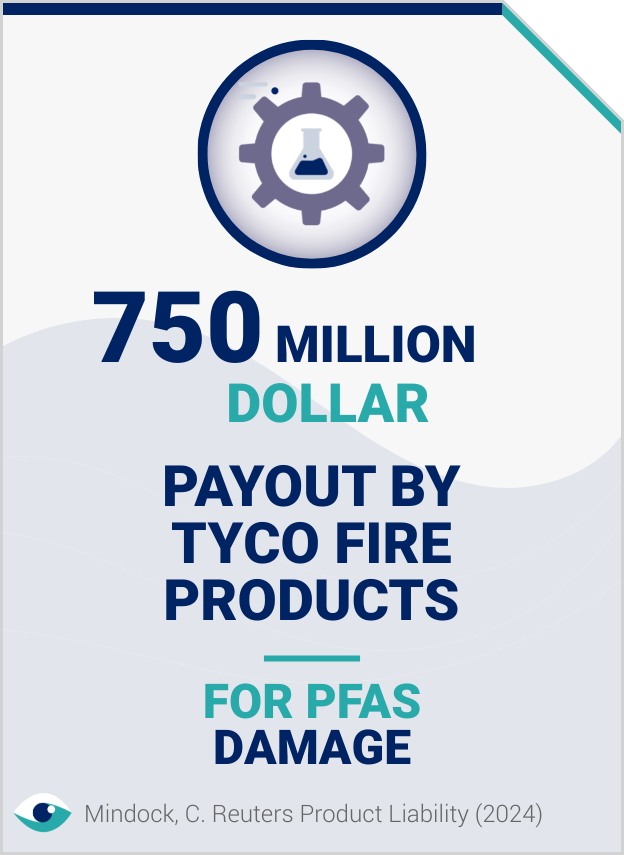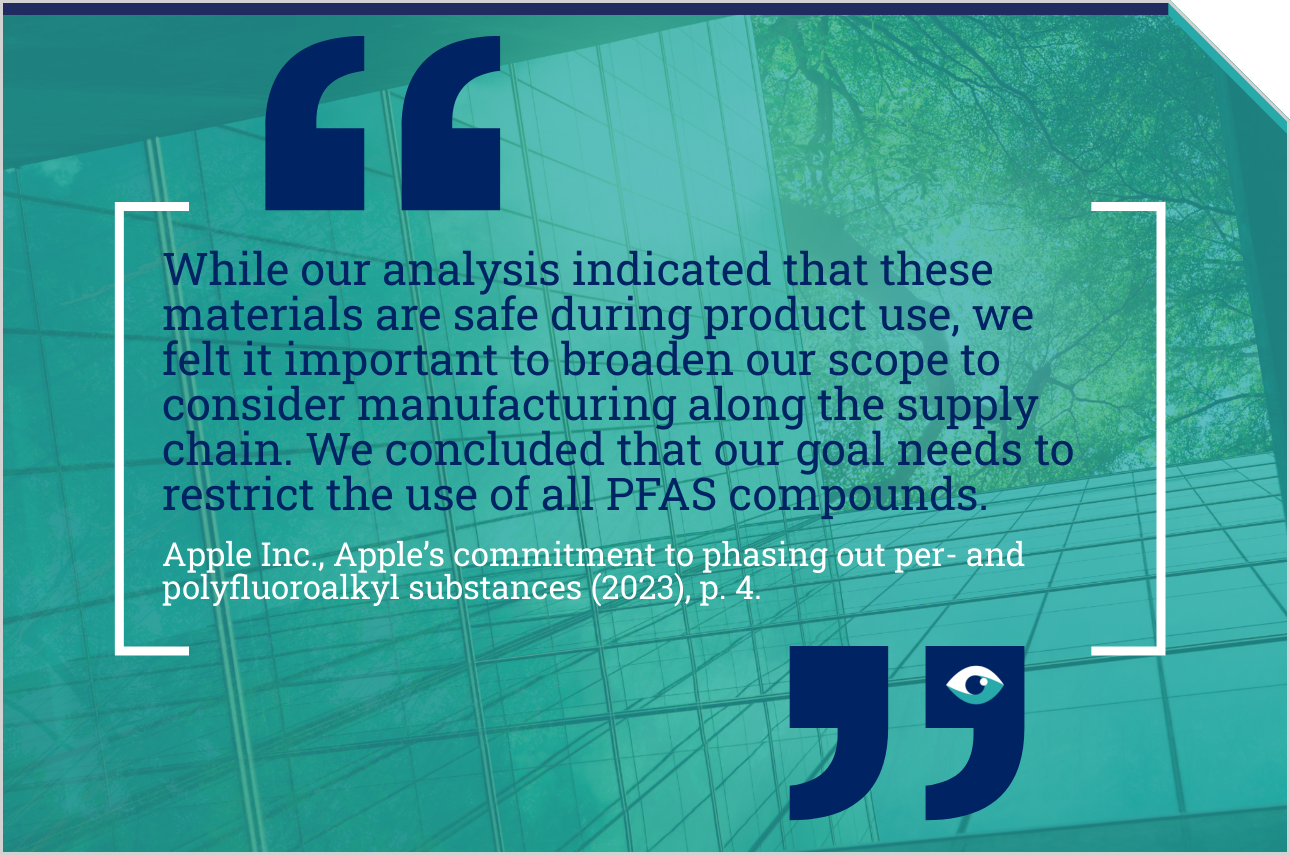Diversified multinational 3M announced in late 2022 that it would stop producing per- and poly-fluoroalkyl substances (PFAS) by 2025. Regulators worldwide are moving almost in unison towards the gradual phase out of PFAS due to their persistence in the environment and association with human health outcomes. The announcement by 3M will expedite the existing trends among organisations downstream of chemicals towards ridding supply chains of PFAS. IKEA and Levi Strauss began work on removing PFAS from their products during the early 2010s. More recently in 2023, Apple, Starbucks and several major retailers have all announced similar voluntary plans.

BACK

3M to end PFAS production by 2025 amid global phase-out
3M's PFAS exit signals wider industry shift towards eliminating harmful substances from supply chains
Value chain: downstream
Chemicals
AT A GLANCE
3M to cease PFAS production by 2025, after global regulatory pressure and health concerns.
In the short term, businesses must identify and eliminate PFAS from their supply chains, impacting product formulations and compliance strategies.
Long-term, this shift could drive innovation in safer chemical alternatives, influencing regulatory landscapes and industry standards.

Fire-fighting foam trend
Moves by US public sector aviation clients to ban fire-fighting foams containing PFASs on their sites may lead to a wave of manufacturers following 3M’s lead. The announcement by 3M will be a first among manufacturers of fighting foam – with most still opting to settle clean-up costs. Major US public sector aviation clients have all put themselves on the same pathway as 3M including the Pentagon, the Federal Aviation Administration (FAA) and the Department of Defense (DoD).
Food and beverage wave
The last two years has seen Starbucks lead a wave of food and beverage organisations implementing bans on the use of PFAS substances in their packaging. Starbucks set its target for the end of 2023 as part of broader initiatives on environmental impact, though has faced challenges in verifying claims. Vendors across the food and beverage landscape have now set similar targets for 2025 including Wendy’s, Chipotle, McDonalds, Burger King, Taco Bell, Popeye’s and Tim Horton’s.

Division at top of tech
The importance of PFAS substances to chip lithography makes it difficult for any manufacturer reliant on semiconductors to remove them from their supply chains. Apple made a bold announcement to ban the use of the most common PFAS substances in 2010 and 2013 (PFOA, PFOS) – extending this to all PFAS substances from 2022 forward. Samsung, on the other hand, remains more concerned about the regulatory impacts on their current production technologies rather than initiating any voluntary change.
An opportunity for new tech
3M's decision reflects a broader regulatory and industry trend to phase out PFAS due to their persistence and health risks. This aligns with actions from organisations like Apple, Starbucks and several food vendors targeting PFAS elimination by 2025. The long-term implications include increased regulatory scrutiny and an opportunity for innovative, safer alternatives across industries reliant on these chemicals, driving substantial changes in manufacturing and supply chain management.
FURTHER READING
- Get the PFAS out of food packaging (Food Engineering)
- Unintentional PFAS in products (EHN)
- Johnson Controls unit to pay $750 mln (Reuters)

BACK
